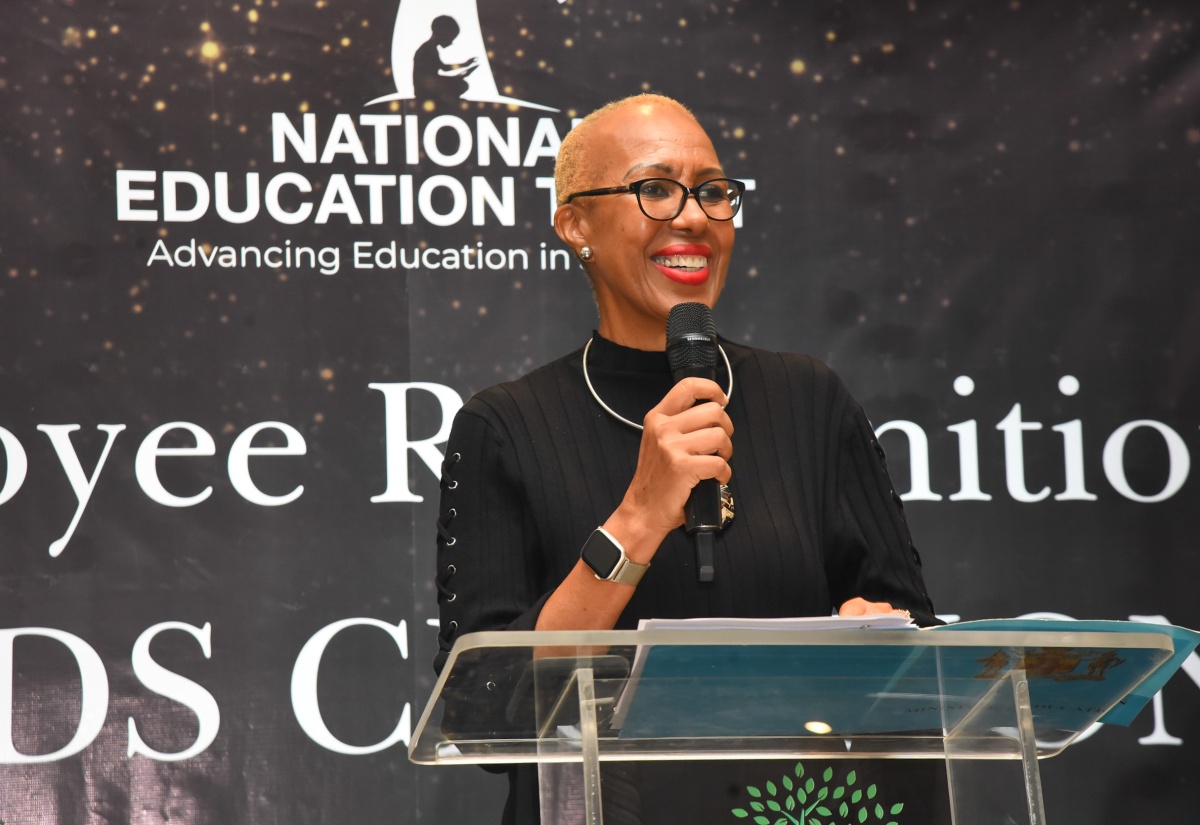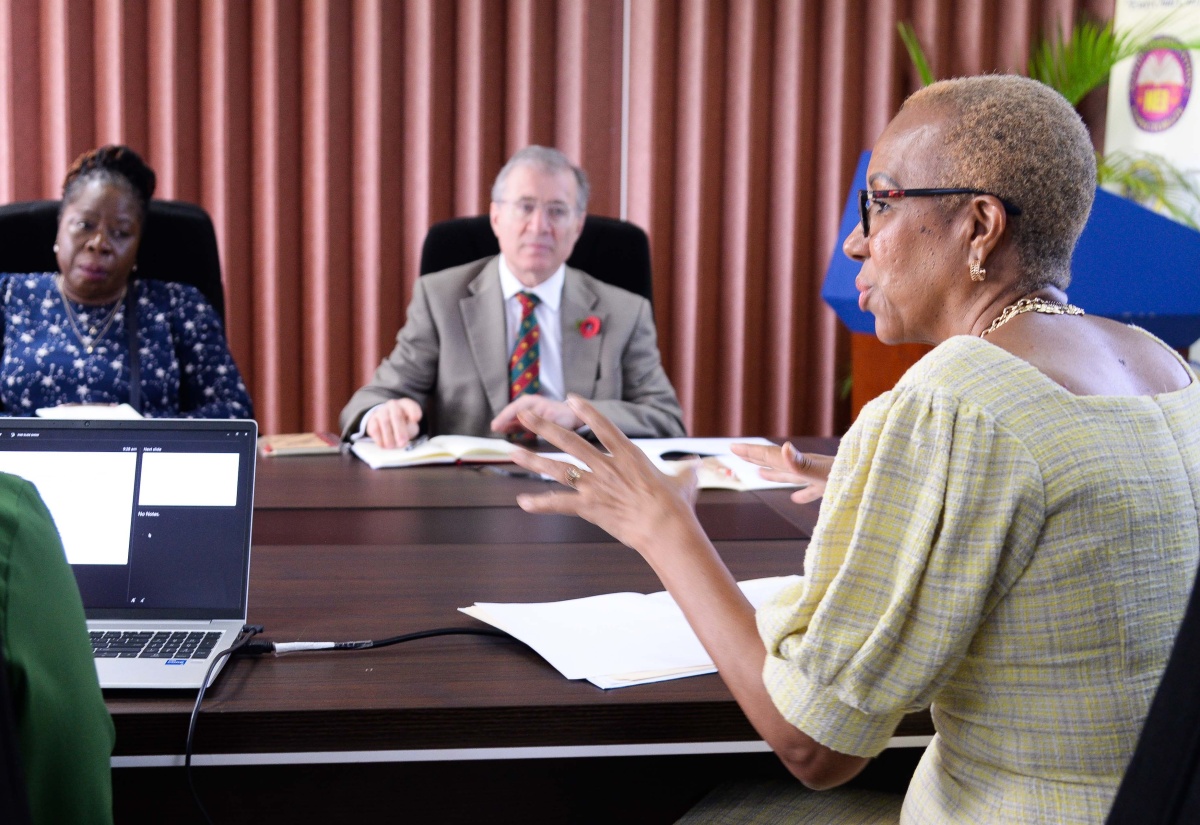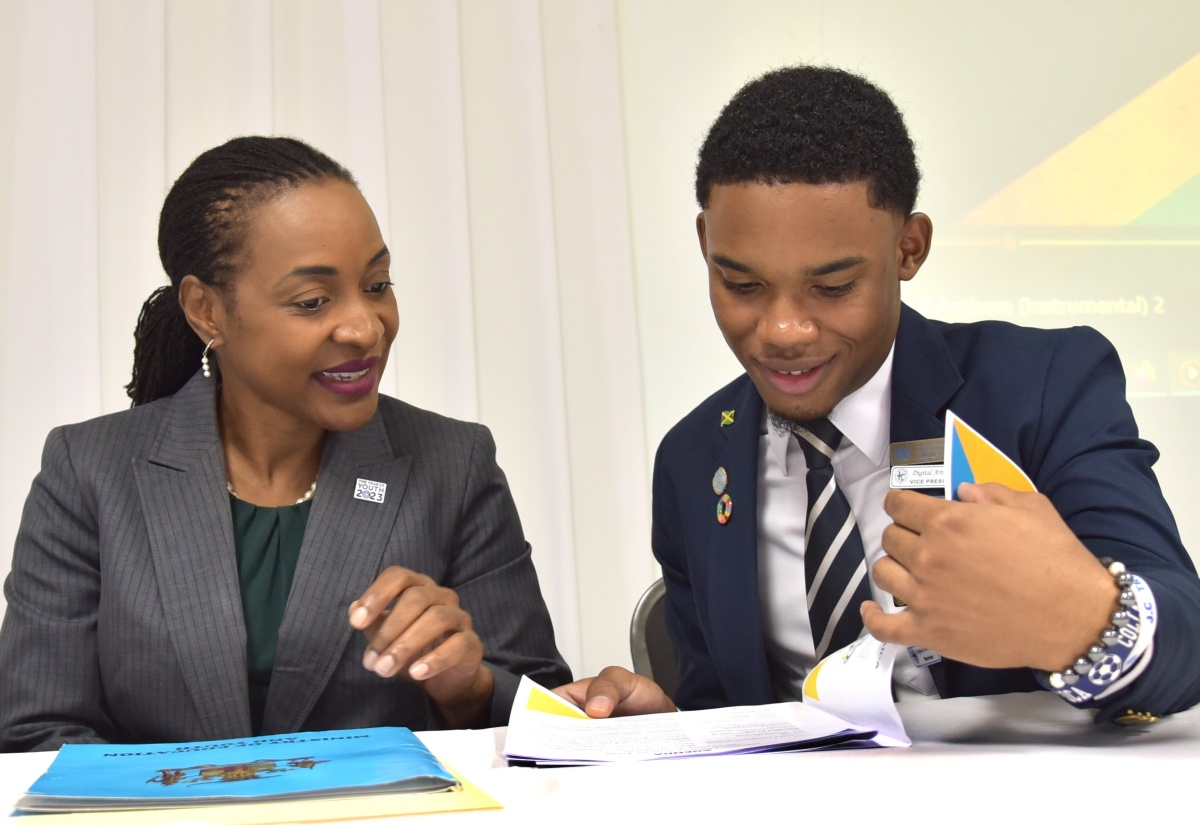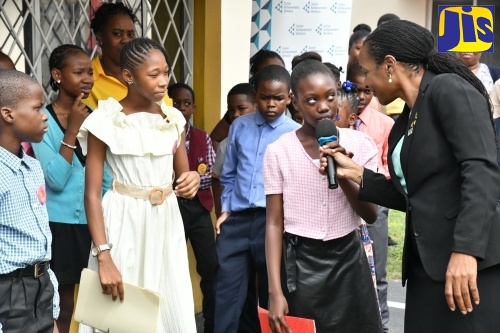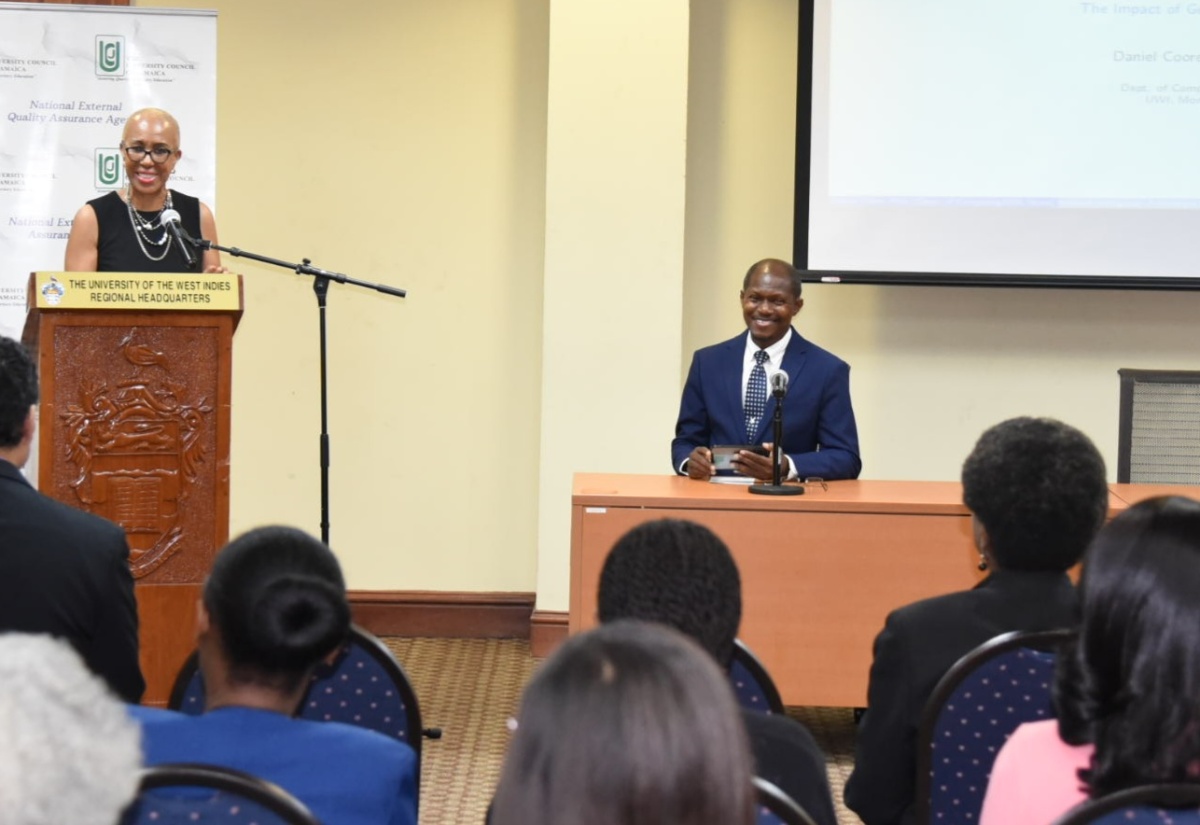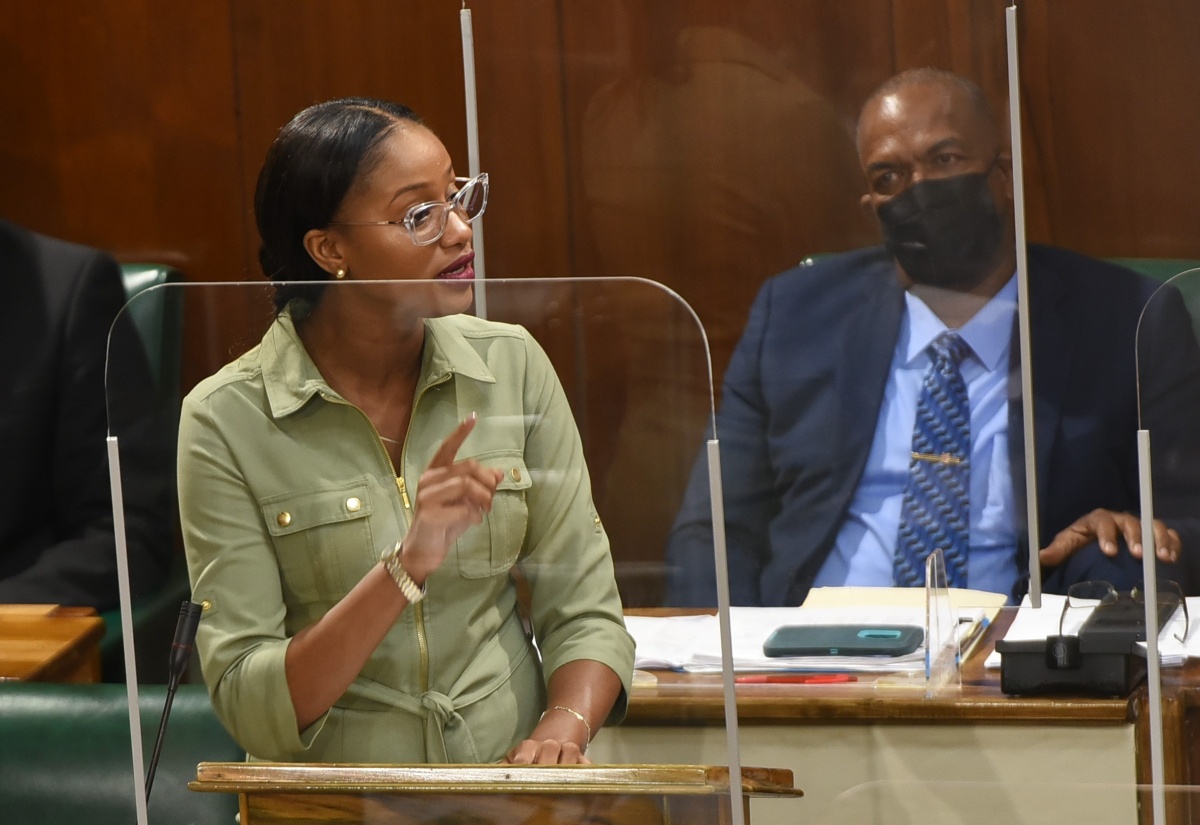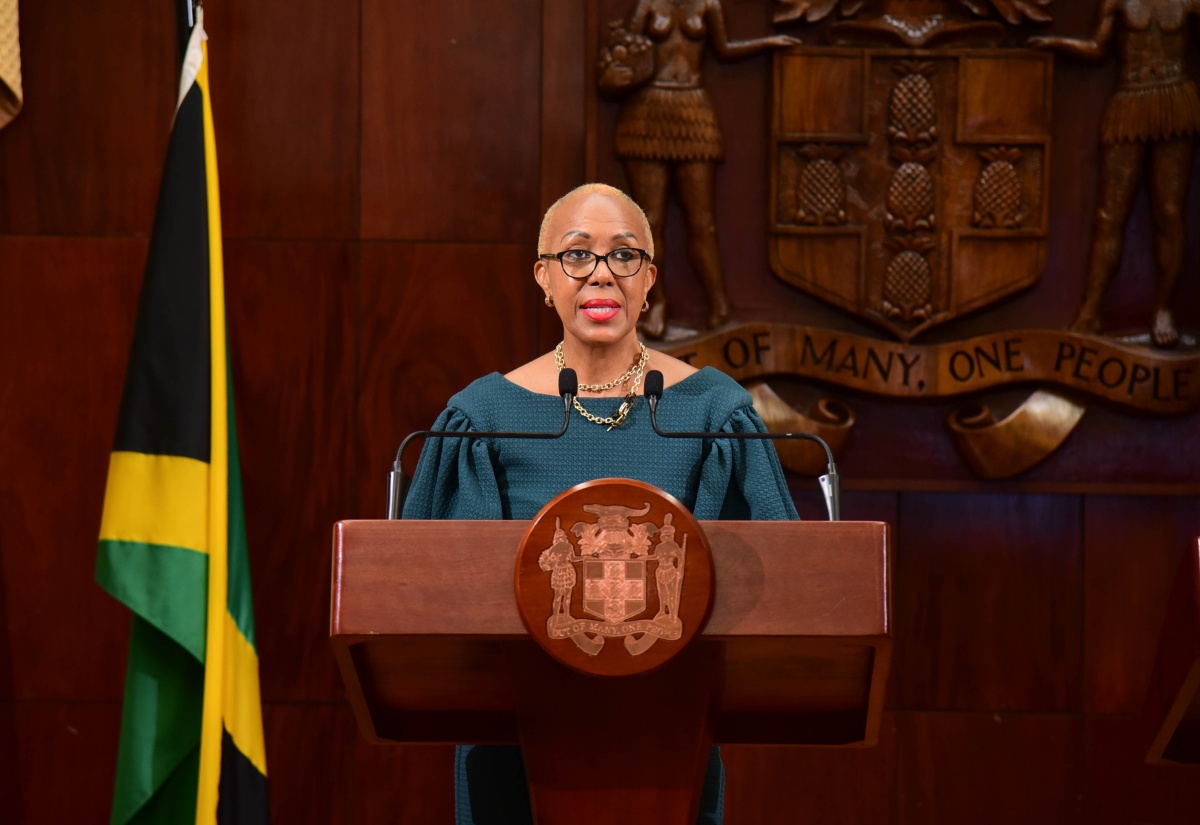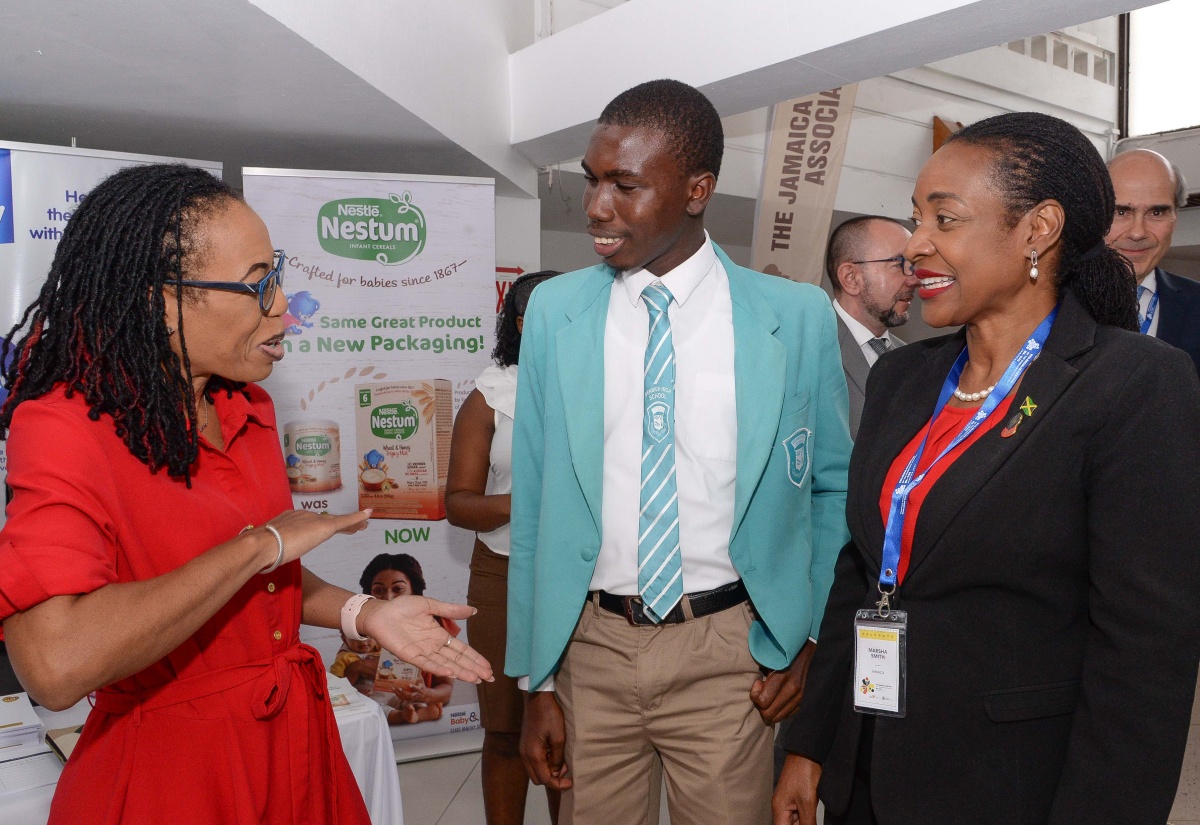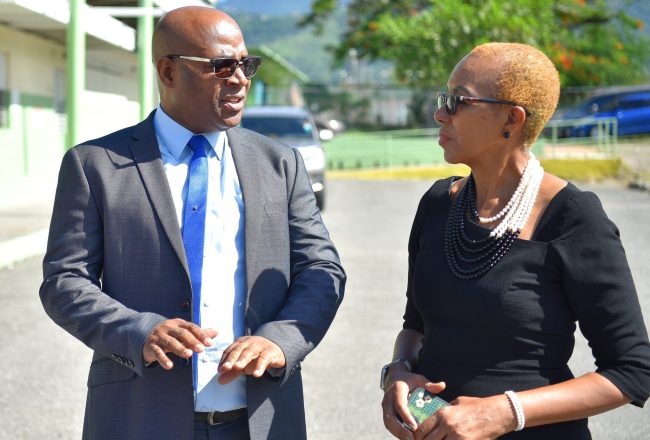Category: Uncategorized
Education Minister and Permanent Secretary Attend Ministry’s First Trend Staff Pop-Up
Members of UK Commonwealth Parliamentary Association Call on Education Minister
National Student Leaders Installation Ceremony
State Minister Marsha Smith Addresses JA. Biztown Open Day
Education Minister Outlines Benefits of Artificial Intelligence
Education and Youth Minister, Hon. Fayval Williams, says the Ministry is committed to exploring how Artificial Intelligence (AI) should be used to benefit the various educational institutions.
Addressing the seventh Dennis Irvine Lecture, hosted by the University Council of Jamaica (UCJ) under the theme – ‘Artificial Intelligence: A Paradigm Shift for Quality Assurance in Higher Education’, Mrs. Williams urged stakeholders to embrace the possibilities that the technology provides for the sector.
“AI introduces personalised and adaptive approaches that cater to the unique needs of each student and has revolutionised the teaching and learning landscape, as shared by many teachers at the primary and secondary levels. The issue of quality assurance in higher education is fundamental for accreditation standards. AI emerges as a potent tool [with the] potential [to make] substantial improvements in the sector,” she said.
The lecture was held on Thursday (October 19) at the University of the West Indies Regional Headquarters in St. Andrew.
Mrs. Wiliams noted that while AI could usher in a new era of an enhanced overall quality education in Jamaica, ethical considerations with the use of AI remain at the forefront.
“Considering that it is not merely about harnessing technology, but also about its responsible and ethical use, with due respect for the rights and privacy of Jamaican students and educators. We must establish comprehensive policies and regulations that guide the development and usage of AI in education,” the Minister said.
These regulations, she added, should encompass data privacy, algorithm transparency and accountability.
“Transparency should be at the core of AI deployment in education, in making Jamaican students, educators, and stakeholders aware of how AI is being deployed and how it affects their educational experiences. Additionally, we should seek to ensure that AI does not exacerbate existing educational disparities,” she emphasised.
The Minister said steps should be taken to provide equitable access to AI enhanced educational resources and opportunities for all Jamaican students.
“We are already equipping them with devices, broadband connectivity, laptops and labs, so that they have no restrictions. As educators, we must prepare our students for the ever-evolving job market, equipping them with skills knowledge they need to thrive in this new era of technology,” Mrs. Williams said.
The lecture was held in memory of Dr. Dennis Irvine, late Chairman of the UCJ, who was a distinguished educator.
Over the course of more than 50 years, Dr Irvine made significant contributions to tertiary education nationally, regionally, and internationally.
He was appointed Chairman of the UCJ in 1987 and served for an initial 11 years.
The noted educator was reappointed to the position in 1996, and served up to his passing.
Dr. Irvine guided accreditation decisions and played a key role in the transition of the University of Technology Jamaica (UTech) and Northern Caribbean University (NCU) from college to university status.
He also presided over a number of committees, including the Tertiary Articulation Committee which created the tertiary qualifications framework which now serves as the benchmark for the Jamaican tertiary education system.
$28m Spent to Assist 4,608 Students in Manchester Central
A total of $28 million was spent to provide support for 4,608 students across all levels of the education system in the constituency of Manchester Central.
Member of Parliament (MP), Rhoda Moy Crawford, said the support included tuition and book grants, school uniforms, technological devices, and other school supplies.
“Additionally, we have provided education assistance to eight schools across the constituency. These endeavours reflect my commitment to the provision of access to education and training,” Ms. Crawford said.
She was making her contribution to the 2023/24 State of the Constituency Debate in the House of Representatives on Wednesday (October 25).
Meanwhile, Ms. Crawford said $5 million was spent to truck water to homes, schools and farms.
She further informed that 289 water tanks were distributed to constituents who experienced challenges harvesting water.
“We have boosted the local economy, offering employment to 528 constituents and providing 558 entrepreneurial grants to small business operators and farmers. Through our welfare programmes, over 3,000 constituents have received compassionate, funeral and medical grants,” the MP said.
Meanwhile, Ms. Crawford told the House that $170 million has been allocated under the constituency’s signature ‘Road a Fix’ programme for the rehabilitation of roadways across the constituency.
She said more road improvement initiatives are scheduled to begin as early as next week, pointing out that these “will remain a dominant feature of my stewardship”.
In the meantime, Ms. Crawford advised that the inaugural Rhoda Moy Crawford Community Football League was launched, adding that support has been provided to other community leagues and sports clubs.
Minimum 100,000 Jamaicans Being Targeted For Parent Education Training
The Ministry of Education and Youth is embarking on an ambitious programme that will target a minimum of 100,000 Jamaicans for parent education training.
The plan for the programme’s delivery has been formulated by the National Parenting Support Commission (NPSC).
Portfolio Minister, Hon. Fayval Williams, said the plan, which has been shared with schools across Jamaica, outlines the strategies to be employed in achieving the target.
“All public and registered private educational institutions are required to deliver parenting education training to their parent population,” she emphasised.
The Minister was addressing Wednesday’s (October 25) post-Cabinet press briefing at Jamaica House.
Mrs. Williams said the NPSC is coordinating meetings with education officers, school administrators, guidance counsellors, deans of discipline and other help in service professionals in schools to ensure that Citizens Security Programme (CSP) guidelines are understood.
“The meetings serve as a guarantee that the quality of the education programme will not be compromised. NPSC support officers are to provide oversight by making daily contact with school personnel for the provision of technical support,” she informed.
Parent mentorship training is currently under way with trainees recommended by ministries, departments, and agencies and schools’ leaderships.
“Prospective parent mentors hail from all regions. They are exposed to intensive modules of parenting education training and, as such, form part of those served under indicator 2 of the CSP. Certified parent mentors are mapped to schools and effectively support parents across Jamaica,” Minister Williams indicated.
Parent Places have also been reactivated with an additional 10 slated to be fully revived before the end of the Christmas school term (September to December).
These were closed due to the COVID-19 pandemic.
Parent Places provide parenting education, psychosocial support, skills training, and counselling, among other interventions.
These are primarily in schools but serve the community to reach a wider cross-section of the population.
The NPSC has also been conducting roving parent places as another strategy to boost parent engagement.
97th Inter-American Children’s Institute Directing Council Meeting Opening Ceremony
Pilot Begins Soon for Air-Conditioning Units in 30 Schools
A pilot to retrofit and instal air-conditioning units in 30 schools is to get under way soon, to reduce heat stress on students amid rising temperatures.
Minister of Education and Youth, Hon. Fayval Williams, made the disclosure during a visit to the Hope Valley Experimental school in Kingston on September 4, for the opening of the 2023/24 school year.
“I am delighted that we are almost about to begin piloting 30 schools, so that we can understand how to do it, how to roll it out and how to scale it up. [Global warming] is a phenomenon that we all have to deal with; temperatures are rising around the world and Jamaica is no exception,” she said.
Mr. Williams said greater use of solar energy in schools is being considered as part of the project.
The Minister noted that the project will seek to have early-childhood, primary and secondary schools retrofitted with air-conditioning units and will, therefore, take some time.
“I am not making a promise to say that it is going to be done by the end of the school year. It is going to take a long time. We have 1,010 primary and high schools. We have maybe another 1,000 early-childhood institutions, so you can see the magnitude of [the task of] retrofitting our schools,” she said.
Mrs. Williams argued that the corrective measure will seek to improve the learning environment for students and staff.
“Unfortunately, over the decades, the way our schools have been built, the ventilation is not as [good] as it should be, and we have not been used to the idea of classrooms being air conditioned, but we are at that moment when not only fans are to be in classrooms but also air conditioning,” she said.
“Of course, this is going to take additional funding to do, and it is not something that is going to happen overnight, but that is where our vision is – to retrofit classrooms so that they will be able to take air conditioning, so that when students and teachers are in the environment it is comfortable,” she added.


